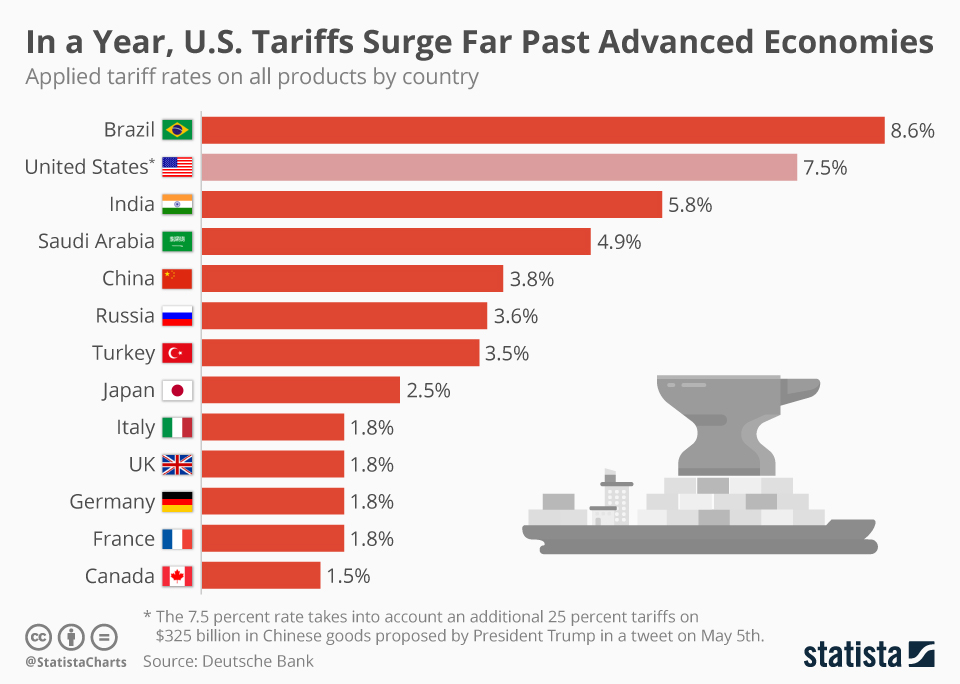Entrepreneurialism represents a transformative force in today’s American work culture, reshaping how individuals and organizations view their roles in the economy. With the rise of freelancing trends and the pioneering spirit of individuals like Erik Baker, more Americans find themselves in positions that encourage self-creation and independent success. His exploration in “Make Your Own Job” highlights the shift from traditional employment models to a landscape where making one’s own job is not just a possibility but a necessity. The history of entrepreneurialism reveals the deep-rooted cultural changes that guide this phenomenon, rooted in the late 19th century economic shifts that propelled individuals to adopt an enterprising mindset. As the lines blur between employee and entrepreneur, the ethos of doing what you love while navigating the demands of modern work continues to inspire a new generation of innovators.
There exists a growing trend towards self-employment and innovation, often referred to as the gig economy or personal entrepreneurship, redefining careers across diverse fields. Many individuals are embracing this radical shift away from traditional job structures, opting instead for positions that allow them more flexibility and choice, as discussed extensively in Erik Baker’s “Make Your Own Job.” This movement is deeply entwined with the evolution of American professional norms, reflecting a historical transition from a fixed career path to a more fluid approach to work. As workers increasingly choose roles that empower them to market their unique skills, the concept of intrapreneurship and solo enterprises emerges at the forefront of modern labor practices. This collective transition emphasizes adaptability and innovation, aligning with the ongoing freelance trends that continue to reshape our understanding of work.
The Evolution of Entrepreneurialism in American Work Culture
The concept of entrepreneurialism has a rich history in American work culture, evolving significantly over the decades. In the late 19th century, as industrial growth slowed and job opportunities dwindled, Americans began to shift their focus from traditional employment to entrepreneurship. This transformation was marked by the rise of the self-made individual who sought to carve their own path, often influenced by the writings of success authors who advocated for the ‘Make Your Own Job’ mentality. This paradigm shift emphasized the application of personal skills, creativity, and ambition as vehicles for personal and financial success.
As Erik Baker examines in ‘Make Your Own Job’, the notion of entrepreneurialism gained momentum during periods of economic uncertainty, such as the Great Depression. The idea of creating one’s own opportunities through freelancing and odd jobs became a necessity rather than just an option. This era saw a rise in self-employment as a viable alternative, underpinned by the belief that anyone could achieve success independent of traditional corporate structures. Baker’s reference to self-help literature during this time highlights the cultural shift towards viewing work as a personal calling, which ultimately laid the groundwork for the entrepreneurial spirit that defines American work culture today.
Freelancing Trends and the Modern Entrepreneur
In recent years, freelancing has dramatically reshaped the landscape of work in America, reflecting larger trends in entrepreneurialism. As more individuals reject conventional nine-to-five jobs, they are increasingly turning to freelance opportunities that offer flexibility and autonomy. This shift can be attributed to several factors, including the rise of digital platforms that facilitate remote work and connect freelancers with clients globally. Moreover, the ongoing fear of job displacement due to technological advancements has led many to adopt an entrepreneurial mindset, where they view themselves not just as employees but as brands and businesses in their own right.
Baker’s exploration of freelancing trends reveals how this new form of work embodies the essence of entrepreneurialism: individuals actively pursuing personal goals, creating unique value propositions, and navigating the complexities of self-marketing. The rise of social media influencers, online consultants, and content creators exemplifies this trend, as these individuals leverage their personal brands to monetize their skills. The narrative of creating one’s own job has intensified, leading to a culture where success is defined by one’s ability to adapt and innovate in a rapidly changing economic landscape.
The Impact of Technological Change on Entrepreneurialism
The intertwining of technology and entrepreneurialism has reshaped the American workforce, ushering in new opportunities and challenges. With the advent of the digital age, technology has become a double-edged sword for workers. On one side, it offers powerful tools for aspiring entrepreneurs to launch and manage their businesses more efficiently; on the other, it has contributed to fears of job loss as automation replaces traditional roles. This shift has caused a notable increase in the number of individuals exploring freelancing and entrepreneurial ventures as safeguards against the uncertainties of a rapidly evolving job market.
As Baker highlights, the volatility inherent in technological advancements has fostered a perpetual state of risk among today’s workers. The notion of securing a job for life has largely dissipated, replaced by a continuous need to innovate and adapt. Furthermore, this landscape encourages individuals to leverage their unique skills and passions to create niche businesses or freelance offerings, thus reinforcing a culture of entrepreneurialism. The pressure to remain constantly agile and forward-thinking reflects a broader societal shift towards valuing entrepreneurial spirit over traditional employment stability.
The Psychological Toll of Entrepreneurialism
While entrepreneurialism celebrates innovation and self-reliance, it also imposes a significant psychological burden on individuals. Baker’s reflections on the emotional toll associated with the pressure to succeed in a freelance-dominated economy reveal the complexities of this lifestyle. For many, the perpetual need to hustle and the threat of failure loom large, often resulting in chronic stress and anxiety. The idea that one must always be ‘on,’ actively marketing oneself, can make it difficult for individuals to find solace in their work, leading to feelings of burnout and dissatisfaction.
This constant state of vigilance and fear of inadequacy can detract from the very passion that initially fuels entrepreneurship. Baker’s insights invite readers to consider the balance between ambition and well-being, advocating for a redefinition of success that encompasses mental health and personal fulfillment. By acknowledging that the journey of entrepreneurialism is fraught with challenges, society can cultivate more supportive environments for aspiring entrepreneurs, encouraging them to pursue their dreams without sacrificing their mental and emotional health.
Gender Dynamics in Entrepreneurialism
The evolving landscape of entrepreneurialism also reflects significant shifts in gender dynamics within American work culture. Historically, women have faced systemic barriers to employment; however, the rise of the gig economy and freelance work has opened new avenues for self-employment and entrepreneurship. As noted in Baker’s analysis, women, particularly those over 40, have increasingly embraced the entrepreneurial ethos, using it as a means to overcome hiring discrimination and create jobs that align with their skills and lifestyles.
This emerging trend encourages women to redefine their roles in the workplace, transitioning from traditional employment to positions of leadership and entrepreneurship. The narratives of self-help literature that support women in their entrepreneurial ventures highlight an important cultural shift: the acknowledgment of women’s unique contributions to business and their potential for success as entrepreneurs. This new wave of female entrepreneurs reshapes the narrative around work, challenging outdated stereotypes and promoting a more inclusive understanding of what it means to thrive professionally.
Self-Help Literature and the Entrepreneurial Mindset
Self-help literature has played a crucial role in fostering the entrepreneurial mindset within American society. Prominent figures like Napoleon Hill have been instrumental in presenting concepts that encourage individuals to pursue their goals and manage their paths to success. Baker references this rich tradition of self-help writing to illustrate how such literature has empowered individuals to adopt entrepreneurial principles as part of their personal and professional development. As readers engage with these texts, they are often inspired to take ownership of their careers, seeing setbacks not as failures but as opportunities for growth.
In ‘Make Your Own Job,’ Baker emphasizes how self-help books have evolved alongside societal trends, adjusting to the changing perceptions of work and success. Encouraging readers to cultivate their unique skills and innovate, these books have contributed to a broader understanding of entrepreneurialism as a viable and accessible pursuit. The emphasis on personal development underscores the importance of resilience and adaptability, essential traits for those navigating the complexities of modern work life. By harnessing the insights from self-help literature, individuals can foster a deeper connection to their entrepreneurial aspirations.
Entrepreneurialism and Economic Resilience
Throughout history, entrepreneurialism has emerged as a beacon of economic resilience in the face of adversity. As Baker notes, during economic downturns, Americans have often turned to entrepreneurial ventures as means of survival and self-sufficiency. This trend reflects a deep-rooted belief in the potential of individual initiative to stimulate economic growth, particularly during tumultuous times. The Great Depression prompted many to seek unconventional job avenues, reaffirming the idea of ‘Make Your Own Job’ as not just a motto, but a lifeline for many Americans.
Today, as uncertainties loom in the workforce due to automation and globalization, the essence of entrepreneurialism continues to promote economic adaptability and innovation. Individuals increasingly view entrepreneurship as a response to both personal and economic challenges. Baker’s reflections on the 20th-century evolution of entrepreneurship remind us that the drive for self-employment can spark broader economic revitalization, showing how entrepreneurial endeavors contribute to market dynamism and community resilience, reinforcing the importance of fostering this spirit in future generations.
The Role of Education in Shaping Entrepreneurs
Education plays a pivotal role in shaping the landscape of entrepreneurialism in America. Academic institutions have increasingly recognized the importance of entrepreneurship as a discipline, offering dedicated programs and resources that encourage students to think creatively and develop their ventures. Baker highlights how institutions like Harvard Business School have adopted new management principles that advocate for an entrepreneurial approach, not only focusing on production but also on inspiring employees and empowering future leaders. This shift in educational philosophy reflects a broader recognition that traditional educational models must adapt to equip students with the skills necessary for navigating an evolving job market.
Furthermore, entrepreneurship education fosters an environment where students can experiment with ideas, learn from failures, and cultivate an innovative mindset. Programs that integrate practical business experiences, mentorship, and exposure to real-world challenges prepare aspiring entrepreneurs for the complexities of the marketplace. By empowering young people to embrace their entrepreneurial aspirations, educational institutions play a vital role in sustaining the American tradition of innovation and self-determination, ensuring that future generations of entrepreneurs are well-prepared to contribute meaningfully to the economy.
Cultural Reflections on the Entrepreneurial Spirit
The entrepreneurial spirit is deeply intertwined with the cultural fabric of America, influencing how individuals perceive work and success. Baker’s exploration of historical and contemporary perspectives reveals how widely held beliefs about entrepreneurship shape public attitudes towards economic contributions and personal ambition. As society continues to embrace diverse representations of what it means to be an entrepreneur, there is a growing recognition that the entrepreneurial journey is not limited to business owners but extends to anyone who exhibits initiative and resilience in their professional lives.
This cultural shift fosters an inclusive understanding of success and encourages individuals from various backgrounds to pursue their aspirations, regardless of the obstacles they may face. Furthermore, the narratives surrounding entrepreneurialism reflect broader societal values, such as freedom, innovation, and individualism, which have become hallmarks of the American ethos. Baker’s reflections urge us to consider how fostering this spirit can create a more robust, diverse economy and challenge preconceived notions of what it means to truly be successful.
Challenges and Opportunities in the Gig Economy
The gig economy presents a unique landscape filled with both challenges and opportunities for aspiring entrepreneurs. Baker discusses how the rise of short-term contracts and freelance work has altered the traditional employment model, empowering individuals to take charge of their careers. This shift has been fueled by technological advancements that facilitate connections between freelancers and clients, allowing for greater flexibility and choice in work. However, the gig economy also presents hurdles such as income instability and the absence of traditional employee benefits, creating a precarious situation for many workers who seek the entrepreneurial lifestyle.
Navigating these challenges requires resilience and a proactive approach to personal branding and marketing. Individuals must learn to differentiate themselves in the crowded gig marketplace, emphasizing their unique skills and experiences. Baker’s insights highlight the necessity of continuous learning and adaptability in an ever-evolving economic landscape. By recognizing both the potential and pitfalls of the gig economy, aspiring entrepreneurs can leverage their creativity and passion to carve out niche markets, ultimately thriving in a culture that increasingly values self-directed professional journeys.
Frequently Asked Questions
What is the historical significance of entrepreneurialism in American work culture?
The history of entrepreneurialism in the United States dates back to the end of the 19th century when the industrial shift led to a decline in manufacturing jobs. This transformation prompted a cultural shift towards an entrepreneurial ethos, emphasizing personal initiative and innovation in work. Erik Baker’s ‘Make Your Own Job’ explores this evolution, highlighting how Americans began to embrace entrepreneurialism as a means to redefine their relationship with work amidst economic changes.
How have freelancing trends influenced contemporary entrepreneurialism?
Freelancing trends have significantly shaped modern entrepreneurialism, allowing individuals to adopt flexible work structures and become self-sufficient. As traditional job markets fluctuate, more people are leveraging freelancing to align with the principles outlined in Erik Baker’s ‘Make Your Own Job.’ This shift not only reflects the rise of gig economy roles but also illustrates a broader acceptance of entrepreneurship as a viable career path.
What can ‘Make Your Own Job’ teach us about the evolution of entrepreneurialism?
Erik Baker’s ‘Make Your Own Job’ delves into the transformation of entrepreneurialism from the late 19th century to the present. The book emphasizes how societal and economic changes have redefined work, encouraging individualism and the pursuit of unique skill sets. Baker discusses how this evolution has led to an increased focus on life fulfillment through work, illustrating a continuous cycle of innovation and personal ambition prevalent in American work culture.
In what ways does entrepreneurialism contribute to individual fulfillment in the workplace?
Entrepreneurialism fosters individual fulfillment by encouraging people to leverage their unique skills and passions to create their own opportunities. This approach has become integral in American work culture, as noted in ‘Make Your Own Job’ by Erik Baker. By promoting self-direction and ambition, entrepreneurialism allows individuals to redefine their career paths and find meaning in their work, moving beyond traditional job constraints.
How does the concept of ‘Make Your Own Job’ reflect the challenges of American entrepreneurialism?
The concept of ‘Make Your Own Job’ embodies both the potential and challenges associated with entrepreneurialism in America. Erik Baker highlights the pressures of constant innovation and competition, which can lead to an exhausting work culture. This reflects the dual nature of entrepreneurialism where one seeks independence and flexibility but also faces the anxieties of self-employment and financial instability.
What role did technological advancements play in shaping the history of entrepreneurialism?
Technological advancements have played a crucial role in shaping the history of entrepreneurialism, particularly during the industrial changes in America. As noted in Erik Baker’s discussions, the shift from manufacturing to service-oriented jobs prompted new entrepreneurial opportunities, enabling individuals to create businesses that addressed emerging societal needs and technological innovations.
| Key Points | Details |
|---|---|
| Rise of Entrepreneurialism | Reflects the shift in American work culture, overshadowing traditional employment. |
| Historical Context | Originated post-19th century industrialization, linked to technological unemployment. |
| Evolving Definitions | Broadened to include various roles beyond business ownership, such as freelancers and managers. |
| Cultural Shift | Shift from a work ethic focused on labor to one that values personal ambition and unique skills. |
| Impact of Economic Stress | Entrepreneurialism tends to rise during economic downturns, as necessity drives innovation. |
| Influence of Self-Help Literature | Books advocating entrepreneurialism have influenced public sentiment and personal goals. |
| Modern Implications | Today, many view themselves as entrepreneurs, further fueling competition and anxiety in work. |
Summary
Entrepreneurialism has fundamentally transformed the landscape of work in America, reflecting a deep-rooted shift in cultural values and economic conditions. As individuals increasingly embrace entrepreneurship, they find opportunities to redefine their roles beyond conventional employment. This ongoing trend not only highlights the importance of personal initiative but also underscores the pressures and anxieties that accompany the entrepreneurial mindset. The evolution of work continues to reflect a society that values innovation and adaptability, leading to a dynamic yet challenging economic environment.



